Injuries are an inevitable part of an active lifestyle, especially for athletes and fitness enthusiasts. Whether you’re a professional sportsperson or a weekend warrior, a sudden twist, fall, or strain can put you on the sidelines. But with the right guidance and expert intervention, recovery is not just possible—it can be empowering.
At Amicare Hospital, Ghaziabad’s trusted name in sports medicine, we specialize in advanced sports injury rehabilitation. Our experienced physiotherapists and sports medicine experts help you recover safely, regain strength, and return to your sport stronger, more confident, and better prepared to prevent future injuries.
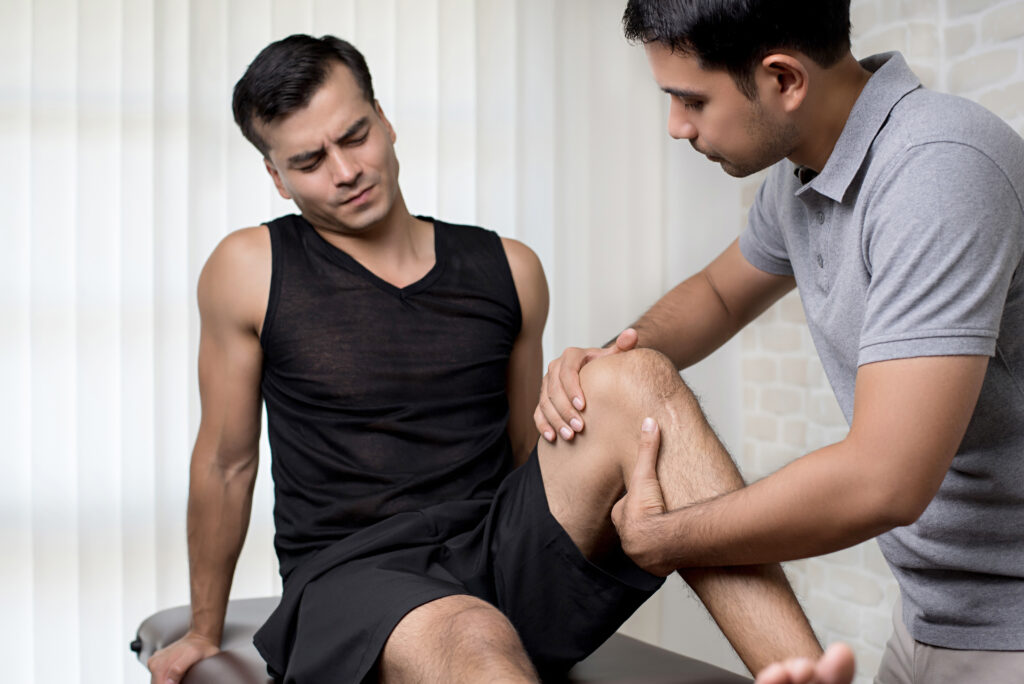
Sports injury rehabilitation is a specialized branch of physical therapy focused on the assessment, treatment, and prevention of sports-related injuries. It is designed to help athletes recover from injuries while minimizing pain and maximizing functional recovery. The goal is to restore strength, mobility, flexibility, and endurance in a structured and efficient manner so the patient can return to their desired activity or sport.
Unlike general rehabilitation, sports injury rehabilitation takes into account the physical demands of specific sports and customizes the recovery process accordingly. Whether it’s a sprained ankle, a torn ligament, or a dislocated shoulder, our expert-driven approach ensures every phase of recovery is tailored to your unique needs and athletic goals.
The sooner, the better! Beginning sports injury rehabilitation early prevents stiffness, muscle loss, and chronic pain. Even if surgery is required, pre- and post-operative rehabilitation plays a vital role in full recovery. Don’t wait for the pain to worsen—early assessment can significantly shorten your downtime.
We believe in a step-by-step approach to healing, where every phase builds upon the previous one:
The initial stage focuses on reducing pain and swelling. This may include rest, ice therapy, compression, elevation (RICE), and modalities such as ultrasound or TENS (Transcutaneous Electrical Nerve Stimulation).
Once inflammation is under control, our focus shifts to restoring the range of motion. Gentle stretches and passive mobilization help ease stiffness and promote flexibility.
We introduce strengthening exercises to rebuild muscle and joint stability. Resistance training and targeted movements, including guided Shoulder Pain Exercises, help restore upper body strength effectively.
Balance, agility, and proprioception are crucial for preventing re-injury. Our team uses stability drills and sport-specific movements to sharpen your neuromuscular control.
The final phase includes tailored drills, practice routines, and performance assessments to simulate game-like conditions. Our goal is to get you back in action confidently, without fear of re-injury.
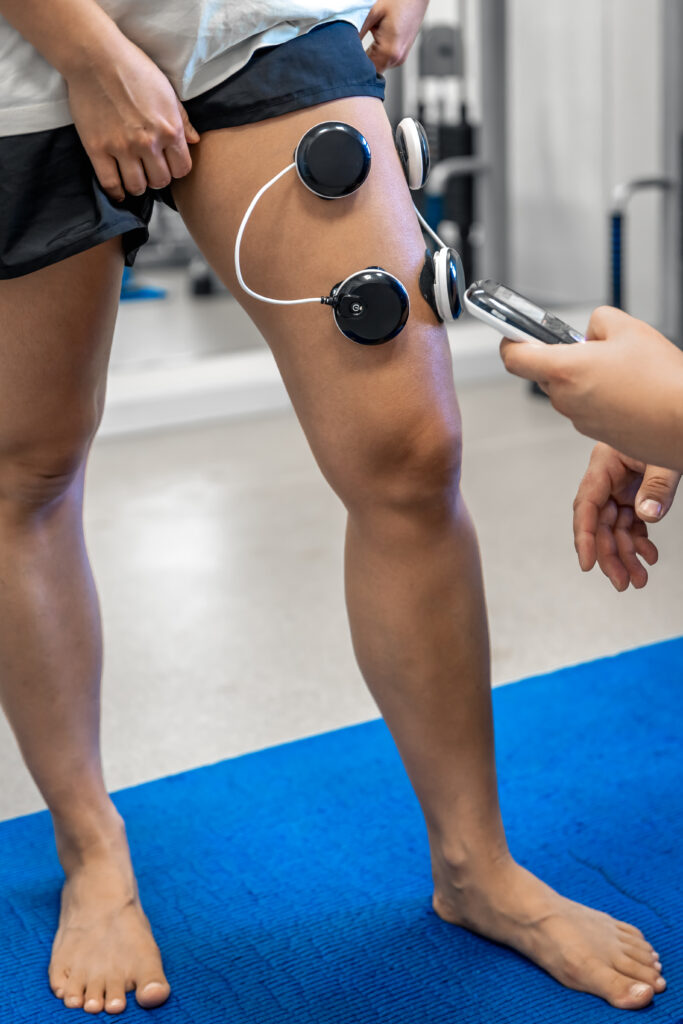
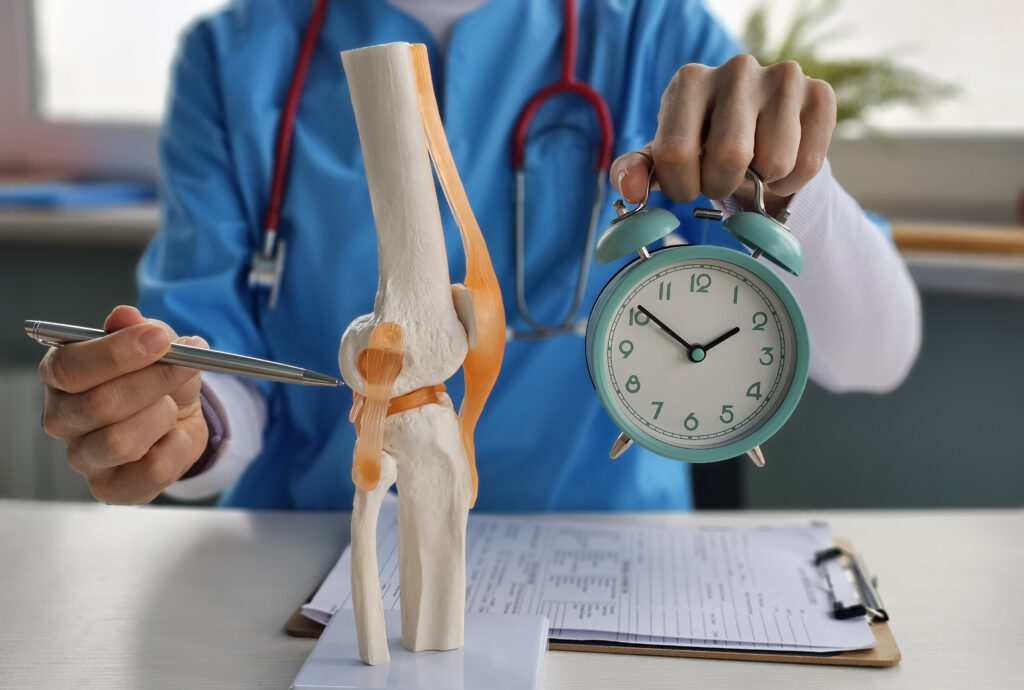
Risks of Delaying Rehabilitation
Putting off rehabilitation might seem harmless at first, but it can quietly make recovery much harder in the long run. Various risks involved in delaying it are:
Slower healing and reduced muscle strength
Stiffness that may become permanent
Increased pain from poor movement patterns
Higher chances of re-injury
Mental and emotional strain from prolonged recovery
An injury may have set you back, but it doesn’t have to end your game. With expert-led sports injury rehabilitation, you can overcome pain, rebuild confidence, and reclaim your active lifestyle.
If you or someone you know is struggling with a sports injury, our clinic is here to help. Schedule a consultation today and take the first step toward a full recovery.
Book your appointment now and get back to doing what you love—better, faster, and stronger.
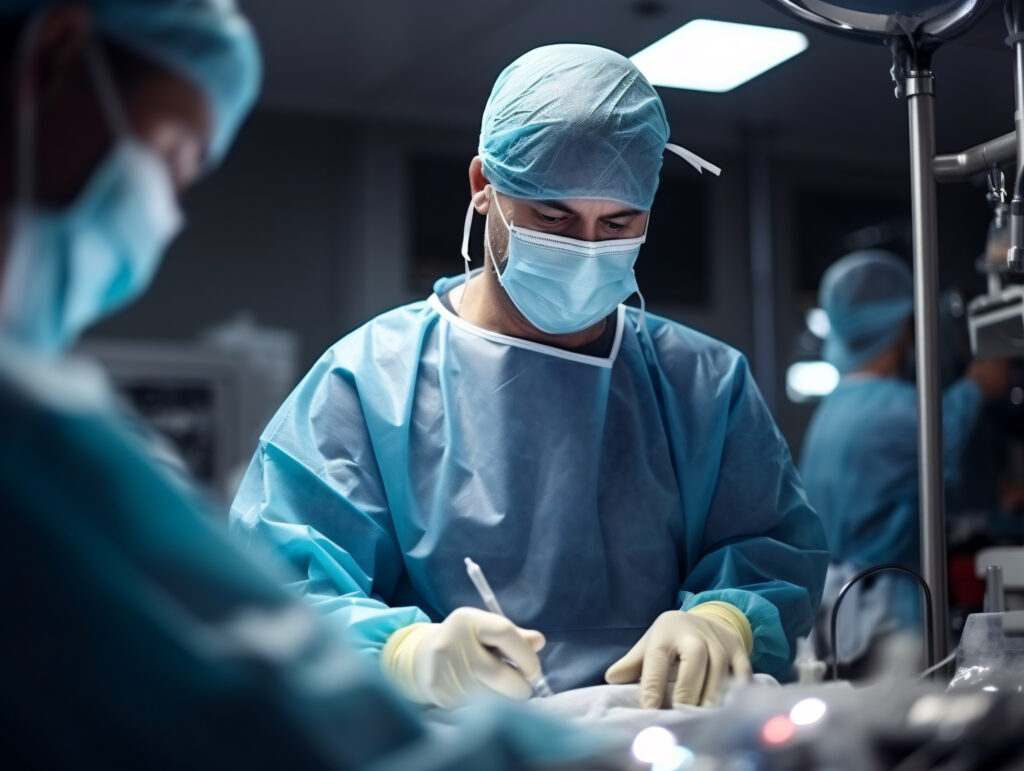
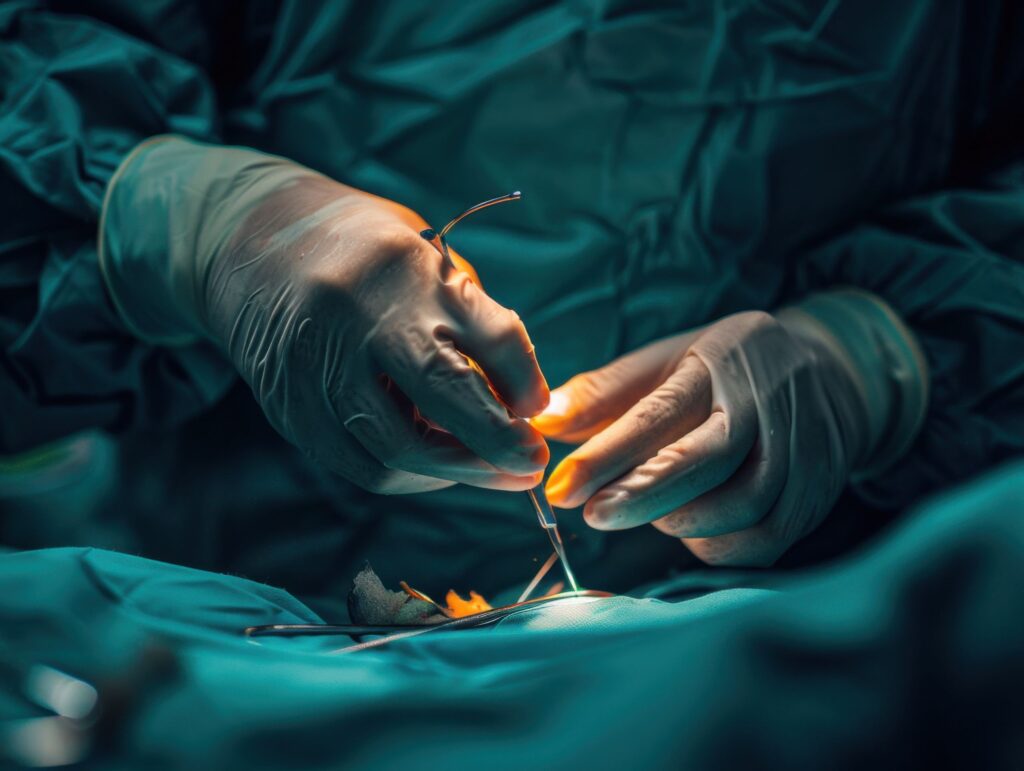

Choosing the right rehabilitation center can make all the difference in your recovery. At Amicare, we combine world-class expertise with personalized care to help athletes and active individuals recover faster and return stronger.
Here’s why Amicare stands out as a trusted destination for sports injury rehabilitation:
Convenient Location in Ghaziabad
Located centrally in Ghaziabad, Amicare is easily accessible for patients across Delhi NCR seeking expert care for sports injuries.
The five stages of sports injury rehabilitation include: 1) Reducing pain and swelling to allow initial healing, 2) Restoring joint mobility and flexibility, 3) Rebuilding muscle strength and endurance, 4) Improving balance, coordination, and functional movements, and 5) Gradually returning to sport-specific activities. Each stage is designed to prepare the body for the next step, ensuring a safe and complete recovery.
The best treatment for sports injuries depends on the type and severity of the injury. Generally, early intervention with the RICE method (Rest, Ice, Compression, and Elevation) helps control pain and swelling. This may be followed by physiotherapy, targeted exercises, manual therapy, and, in severe cases, surgical intervention. A personalized treatment plan from a sports injury specialist ensures the fastest and safest recovery.
Low-impact exercises such as swimming, cycling, or resistance band training are often the best rehabilitation activities, as they allow movement without placing excessive strain on the injured area. The choice of activity depends on the injury, and it is always recommended to follow a program designed by a physiotherapist or sports rehab expert to avoid further damage.
The three R’s of rehabilitation are Rest, Recover, and Return. Rest involves giving the injured area time to heal, Recover focuses on regaining mobility, strength, and function through targeted therapy, and Return means gradually resuming sports or physical activities in a safe and controlled manner.









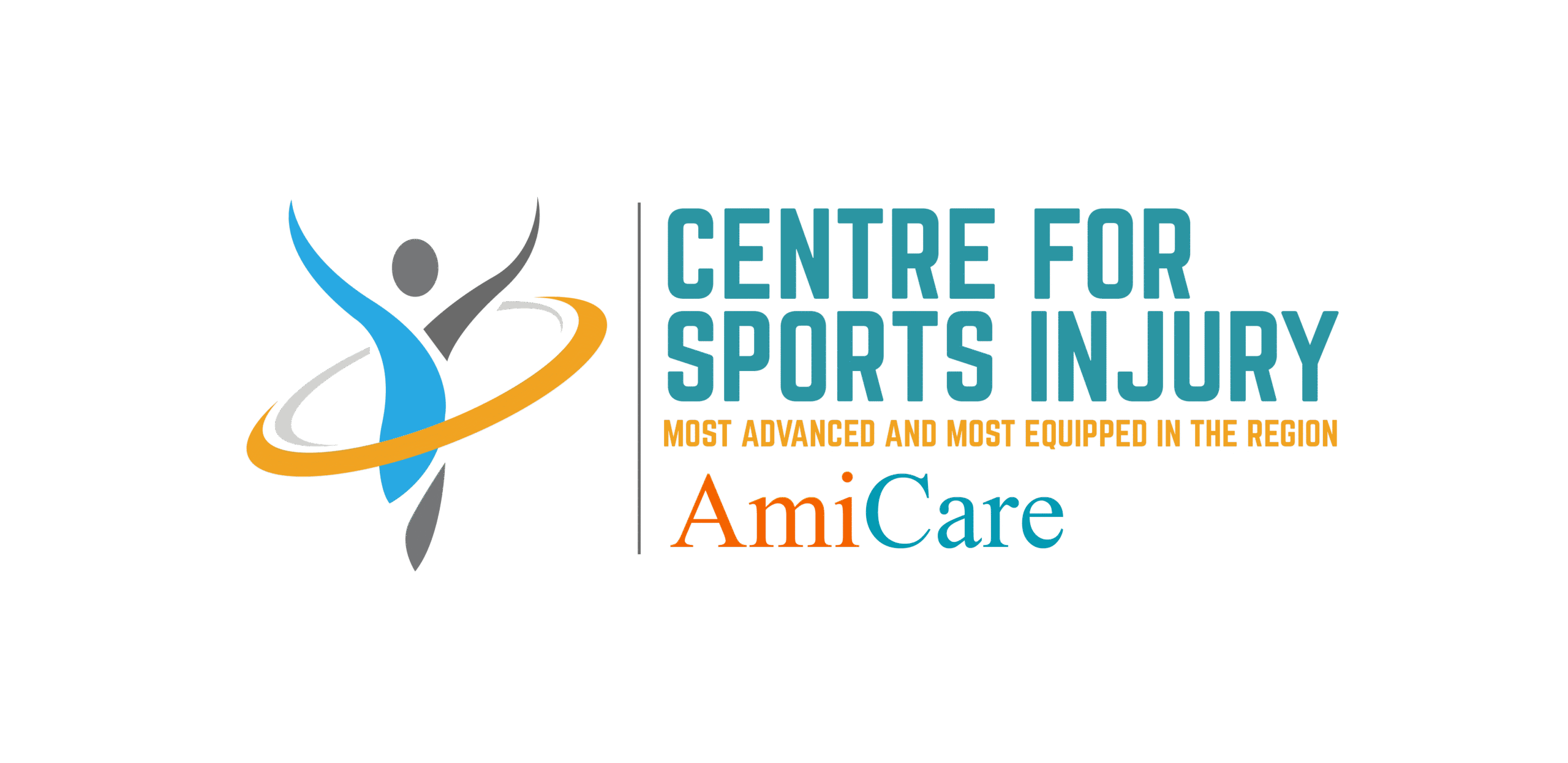
Recover faster, play stronger. Advanced care for ACL tears, shoulder dislocations, ligament injuries, and more — all under expert hands and cutting-edge technology.